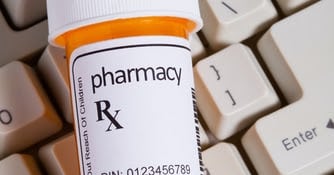Middle-school students from small towns and rural communities who received any of three...
Teen Drug Users Suffer High Depression Rates
Clinicians treating adolescents who acknowledge recreational use of methamphetamines or ecstasy (MDMA) have new reason to be concerned about sequelae of this drug use. Researchers at the University of Montreal reported April 18 in the Journal of Epidemiology and Community Health that teenagers who used one or both of these drugs had significantly increased risk for depression one year later. After studying 3,900 10th graders, the researchers found that "compared to non-users, adolescents who acknowledged taking either speed or ecstasy had a 60 percent to 70 percent greater risk of experiencing telltale signs of depression a year after their last recorded use."
The researchers added that further study is needed to assess whether the independent associations between meth and ecstasy use and depression in teens "reflect drug-induced neurotoxicity and whether adolescence is a period of increased vulnerablity to the hazards of synthetic drug exposure."
Another synthetic drug, referred to as "bath salts," is rapidly gaining in popularity among adolescents and others, with unknown consequences. Read about that problem in Psychiatric News. For comprehensive information about interventions for teen drug abuse, see Clinical Manual of Adolescent Substance Abuse Treatment from American Psychiatric Publishing.
The researchers added that further study is needed to assess whether the independent associations between meth and ecstasy use and depression in teens "reflect drug-induced neurotoxicity and whether adolescence is a period of increased vulnerablity to the hazards of synthetic drug exposure."
Another synthetic drug, referred to as "bath salts," is rapidly gaining in popularity among adolescents and others, with unknown consequences. Read about that problem in Psychiatric News. For comprehensive information about interventions for teen drug abuse, see Clinical Manual of Adolescent Substance Abuse Treatment from American Psychiatric Publishing.
(image: Victor Correia/Shutterstock.com)






